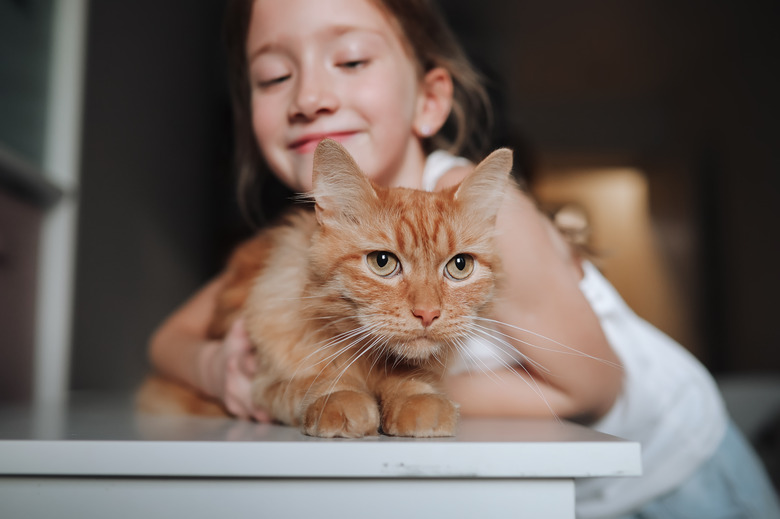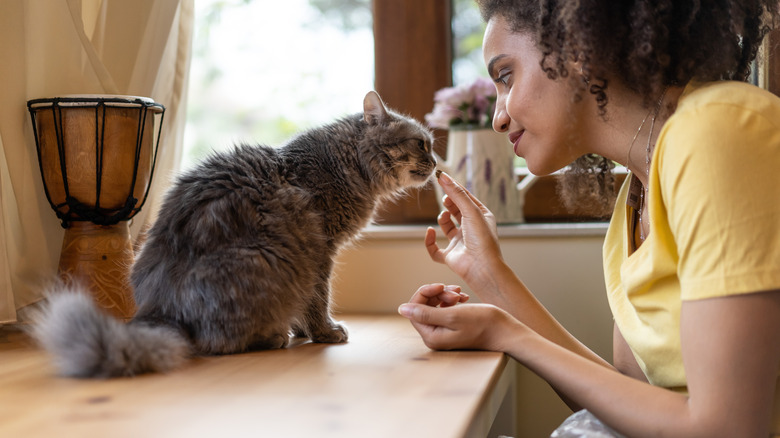Are Cat People More Emotional? Science Says Probably.
It's fairly well-known by now that our pets do provide us with stress relief. When we touch dogs, or even make eye contact with dogs, our bodies produce oxytocin, otherwise known as the "love hormone" that makes us feel warm and fuzzy. However, most studies about animals and our emotions involve humans and canines, but what about cats? A recent study involving humans on a college campus and felines showed that cats certainly could reduce stress in some people. Interestingly enough — the study also found that the people who were drawn to cats over dogs tended to score higher on a scale that measures emotionality.
The 2022 study, published in Anthrozoös, was done using students and employees from the Washington State University college campus. Each of the human participants had some typical demographic data about them collected by researchers, including their age, gender identity, and whether they were a student or an employee of the school. In addition to that info, participants were also asked about their animal experiences, including whether they have a fear of cats, if they're allergic to felines, and whether they would choose cats or dogs to conduct the study with. The team also determined their personality trait of emotionality using a theory called The Big 5.
The Big 5 was developed in 1980 as a way to provide a general framework for researching personalities. You may have even taken an exam like this one to determine how you measure within The Big 5 when applying for jobs, or at the start of working with a new therapist or another mental or behavioral health professional. The traits measured here include openness, neuroticism, agreeableness, extraversion, and conscientiousness. People who measure extremely high or extremely low along the scale for certain traits may be more highly emotional, or more easily overwhelmed by their emotions.
Anyway, back to the matter at hand: the outcome of the study. What they found were those female-identifying cat owners who were also open to working with dogs, and who indicated emotionality were overall more interested in visiting with cats than with dogs. "We found that people on the higher end of that scale were significantly more interested in interacting with cats on campus," study co-author Patricia Pendry told Science Daily when asked about the findings. "Given that prior research has shown that such individuals may be more open to forming strong attachments to animals, it makes sense they would want cats to be included in these programs."
Previous studies have, indeed, shown that more highly emotional people are just drawn to animals in general. In the case of this study, which set out to see the potential interest in stress-relief programs involving animals, the team did find an overwhelming interest in that possibility. The fact that they included cats, who are often overlooked in the research world, makes big strides toward more cat research in the future, and acknowledges the importance of the human-cat bond that's been building for thousands of years.
References
- Truity: The Big 5 Personality Test
- Simply Psychology: What are The Big 5 Personality Traits?
- Science Daily: Highly Emotional People Drawn to Cats for Stress Relief Programs
- T and F Online: University Cats? Predictors of Staff and Student Responsiveness Toward On-Campus Cat Visitations
- T and F Online: The Relationship Between Neuroticism Facets, Conscientiousness, and Human Attachment to Pet Cats

